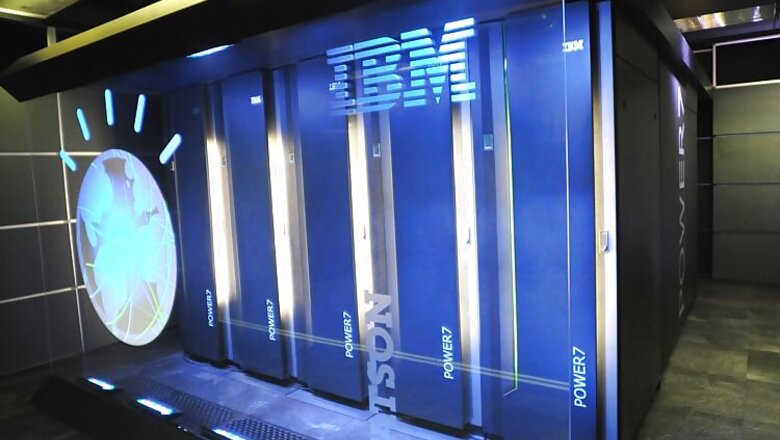
views
Vancouver: An X Prize unveiled on Wednesday promised millions of dollars to a team that could best show that artificial intelligence is humanity's friend, not its enemy.
X Prize founder Peter Diamandis and the newly-appointed head of Watson at US technology veteran IBM David Kenny challenged software savants to demonstrate "how humans can collaborate with powerful cognitive and AI technologies capable of solving some of the world's grand challenges."
Diamandis and Kenny announced a $5 million X Prize on the stage of a prestigious annual TED Conference here, telling the audience it would be here that the ultimate winner would be picked by the audience in the year 2020.
"Personally, I am sick and tired of the dystopian conversation around artificial intelligence," Diamandis said, referring to high-profile public debate whether self-aware and smart machines would annihilate humanity or help it thrive.
Diamandis weighed in on the side of AI being vital to surmounting huge problems in the world and hoped that would be made clear when three finalists for the new prize take to the TED stage in four years.
Competing teams will be free to define challenges their AI creations are designed to tackle.
A half-million dollars in prize money will be awarded during an elimination process at IBM World of Watson conferences intended to whittle the field down to three teams that will use AI to deliver "jaw-dropping, awe-inspiring" TED talks.
Conference attendees will pick the one they think is best. The winning team will get $4.5 million in Watson X Prize money.
"X PRIZE and IBM believe that the partnership between humans and technology has produced some of society's most groundbreaking modern advancements, from landing a man on the moon to addressing climate change to mapping the human genome," the AI prize partners said in a joint release.
"We believe there's an opportunity today for others to push the boundaries yet again."
Teaching machines to think the way people do has been a hot topic in technology, with companies such as Facebook, Google, Microsoft, and Apple working to build smarts into services or products.
Watson, which gained fame in 2011 for defeating human opponents on the "Jeopardy" quiz show, has been reaching into its computing power since then for an array of other services.
The quest to build real brains into machines has caused some to fear it could turn on humanity in terrifying ways depicted in science fiction films along the lines of "The Terminator."



















Comments
0 comment